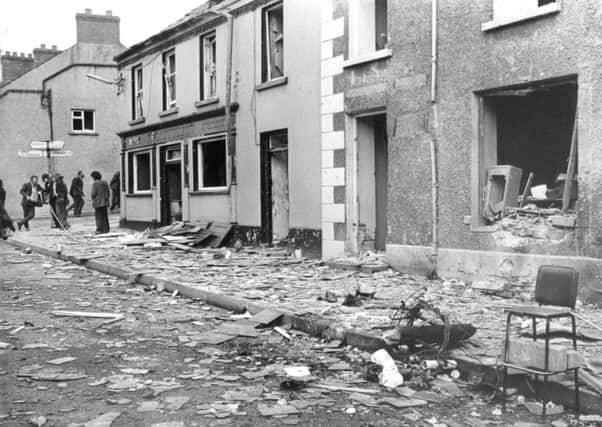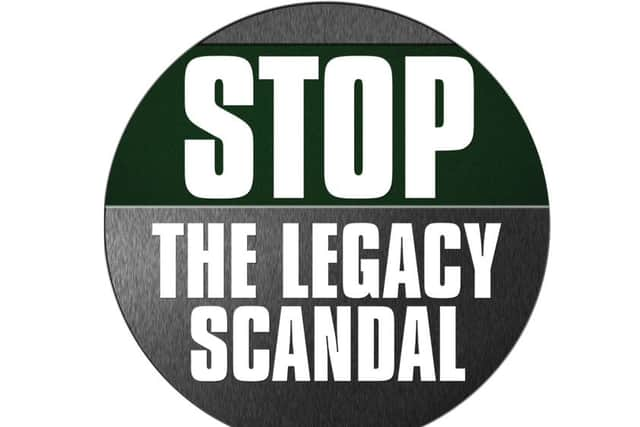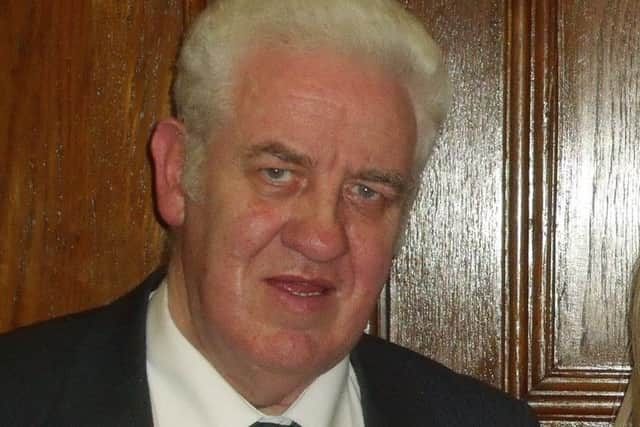The IRA campaign diminished our appetite in the south for Irish unity


Born and reared in a traditional nationalist Catholic family, going through the usual Catholic education I naturally was imbued with the 800 years of oppression, that the re-absorption of the ‘Fourth Green field’ was a priority, that cruel England was to blame for all our ills and how noble a thing it was to die for Ireland.
Indeed as a young boy I often conflated the Easter Rising in Dublin with the Resurrection of Jesus from the dead in a sort of mixed up religious fanatical juxta positioning.
Advertisement
Hide AdAdvertisement
Hide AdOn the odd occasion I crossed the border I was always impressed with the well kept farms, houses and roads in places like Fermanagh (which later became killing fields for many Protestants) and feeling not a little envious of their health and education systems while we struggled before entry into EEC.


That might have continued up to the outbreak of troubles in Derry in 1969 when the British Army were welcomed on to the streets of that city as well as Belfast and elsewhere to protect people and their homes.
No doubt there was some discrimination in places like Derry or Londonderry as regards housing, gerrymandering, jobs etc.
That was a civil rights matter and was being addressed by people like John Hume,Ivan Cooper,Austin Currie and others, that is until the old pike in the thatch re-emerged and the men of violence jumped on the bandwagon having been off the stage for so long.
Advertisement
Hide AdAdvertisement
Hide AdI think a real turning point came for me when three unarmed teenage Scottish soldiers were lured to their deaths in March 1971 and slaughtered mercilessly, I can still recall the anguish of their folk back home being interviewed on TV.


Then of course we have horrors like Claudy, Bloody Friday in Belfast when people ran from bombs into path of another one, I can still see images of body parts being shovelled into plastic bags.
Of course I know about Bloody Sunday in Derry too.
It was sometime after this that a respected former Irish prime minister Liam Cosgrave said that activities of the IRA were diminishing greatly the wish of the Irish people for a united Ireland and how right he was – nowadays I suspect the cost of such is now a factor also !
Returning to the fields of Fermanagh and elsewhere there was a huge onslaught against Protestants, they were slaughtered mercilessly in their homes, at church, on their farms.
Advertisement
Hide AdAdvertisement
Hide AdIRA used any excuse to target them, that some of them might have at some stage served in police, UDR, Reserve etc, or even did work for security forces in services area.
When IRA say it was a war,then they broke every rule in the book, but of course theirs was not a war but a fierce sectarian ethnic cleansing campaign — often targeting only sons who might inherit farms and businesses, and this was well before we heard that term from the Balkans.
Yet republicans try to play the victim card now, the British were the main conflict protagonist, pursue security forces relentlessly while they wave letters of comfort giving them immunity.
One would never think that they killed 2,100 out of the 3,700 killed in the conflict.
Advertisement
Hide AdAdvertisement
Hide AdThe huge mistake the IRA made was that when they said Brits Out they really meant Protestants out, that is people who are here for hundreds of years, and as the poet John Hewitt said “This is our country also, nowhere else and we shall not be outcasts on the world”.
I also often observe that republicans want extensive enquiries into their grievances and deaths on their side,but not so when they committed awful deeds.
I often think its akin to the Jewish situation down the years — how dare they object to being killed.
Protestants are not as vocal in looking for redress, I often suspect they are happy to be let live in peace, or is there a little bit of Biblical “turning the other cheek” imbued in them or maybe fear.
Advertisement
Hide AdAdvertisement
Hide AdI have in mind the Church of Ireland Archbishop John Gregg of Dublin asking of Michael Collins if Protestants were actually to be allowed live in the new state.
I am also thinking of Michael Longley’s lines about Priam whose son was killed:
‘I get down on my knees and do what must be done
And kiss Achilles’ hand, the killer of my son’
Is it also not ironic that IRA republicans as they call themselves follow Wolfe Tone, who spoke of uniting, Catholic, Protestant and Dissenter?
As an Irish Gaelic speaker I often think that republicans while having the right to the language of their choice may use it to rub the other side’s nose in it.
Advertisement
Hide AdAdvertisement
Hide AdWhy has it suddenly become so important especially as Michelle O’ Neill and Mary Lou have very little of it?
As I was scribbling this I heard the famous Irish/English rugby match at Croke Park in 2007 being talked about on the radio, respect all round-only a handful of republican protesters outside-wearing Celtic soccer jerseys!
I hope those days can return, but with Brexit one never knows.
So often in our history events can intervene.
I have in mind events before 1916, the land issue had been settled, the country was prosperous, Home Rule was on the way, but the Great War intervened and of course some Ulster resistance.
The rest as they say is history.
• Brendan Cafferty is retired and lives in Co Mayo. He reads the News Letter online and wanted to contribute to our series